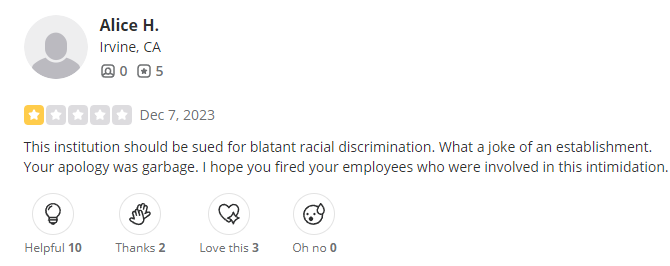Read More Breaking Marketing News
Maverick's Morning Thoughts
Navigating Media Crisis Management: Lessons from Farley's Coffee Incident
by Maverick Steffen on 12/9/2023
In the wake of the recent incident at Farley's Coffee in California, where staff members were captured on video making anti-Israel comments and blocking a customer's access to a restroom, businesses can learn valuable lessons in media crisis management. This situation, which led to several pages of negative Yelp reviews as of December 8, 2023, underscores the importance of being prepared for such crises.
Don't expect to sleep for about 24-48 hours--it's all hands on deck!
1. Immediate Response Plan: It's crucial for businesses to have a media crisis plan. This should include having readily available contact information for media outlets to swiftly issue a press release or statement. Timeliness is key in addressing any crisis publicly, ensuring your side of the story is heard as early as possible.
2. Crafting a Careful Response: Whether it's an apology or another form of response, the wording is critical. It should be empathetic, sincere, and reflect a commitment to rectify the issue.
In Farley's Coffee's case, their apology and promise of ongoing staff training showed an attempt to take responsibility and address the underlying issues.
3. Engaging with Online Platforms: Immediately notifying platforms like Yelp and Google is essential. These platforms can assist in monitoring and managing inappropriate activity on review sites, which can spiral out of control in a crisis.
4. Internal Communication and Training: Ensure that all staff members are aware of the potential ramifications of their actions in public spaces, especially in customer-facing roles. Ongoing training about company values and crisis response should be a priority.
5. Monitoring Social Media: In today's digital age, social media can both fuel and resolve crises. Keeping a close eye on social media channels can help companies quickly identify and address issues as they arise.
6. Transparent Follow-Up: After the initial response, it's crucial to keep the public informed about the steps being taken to prevent similar incidents. This might include sharing updates about staff training, policy changes, or community outreach efforts.
7. Legal and Ethical Considerations: Understand the legal and ethical boundaries related to the crisis. For instance, any form of hate speech or discrimination should be addressed not just from a PR standpoint but also in compliance with legal standards.
The Farley's Coffee incident shows how quickly a situation can escalate and impact business reputation. It's a stark reminder of the importance of having a robust crisis management plan. Such a plan can not only help mitigate the immediate fallout but also lay the groundwork for rebuilding trust and maintaining a positive public image in the long term. As businesses navigate the complexities of public relations in an increasingly digital world, being prepared for a crisis is not just advisable; it's essential.
To your success!

DOMINATE and WIN with MAVERICK
Learn how to use marketing to get whatever you want.

Ready to DOMINATE and WIN?
Privacy Policy: We hate spam and promise to keep your email address safe.
